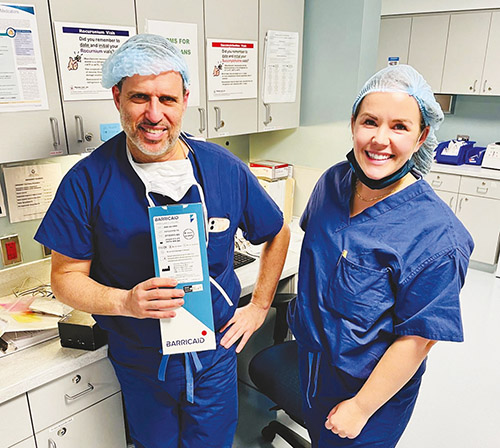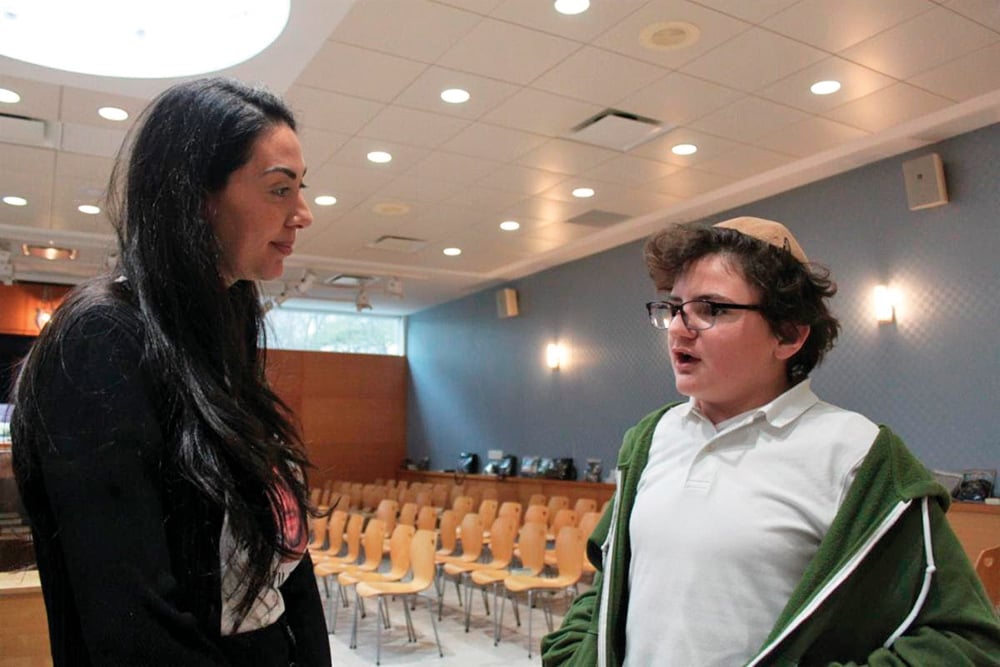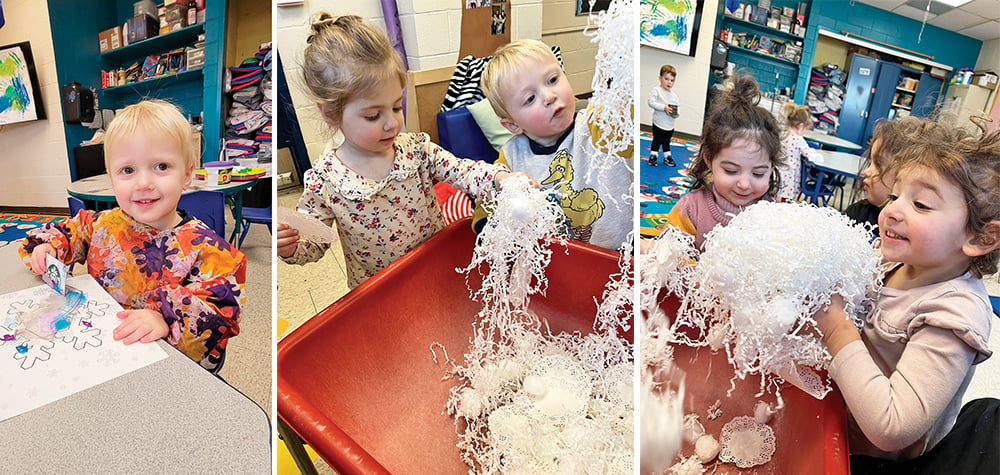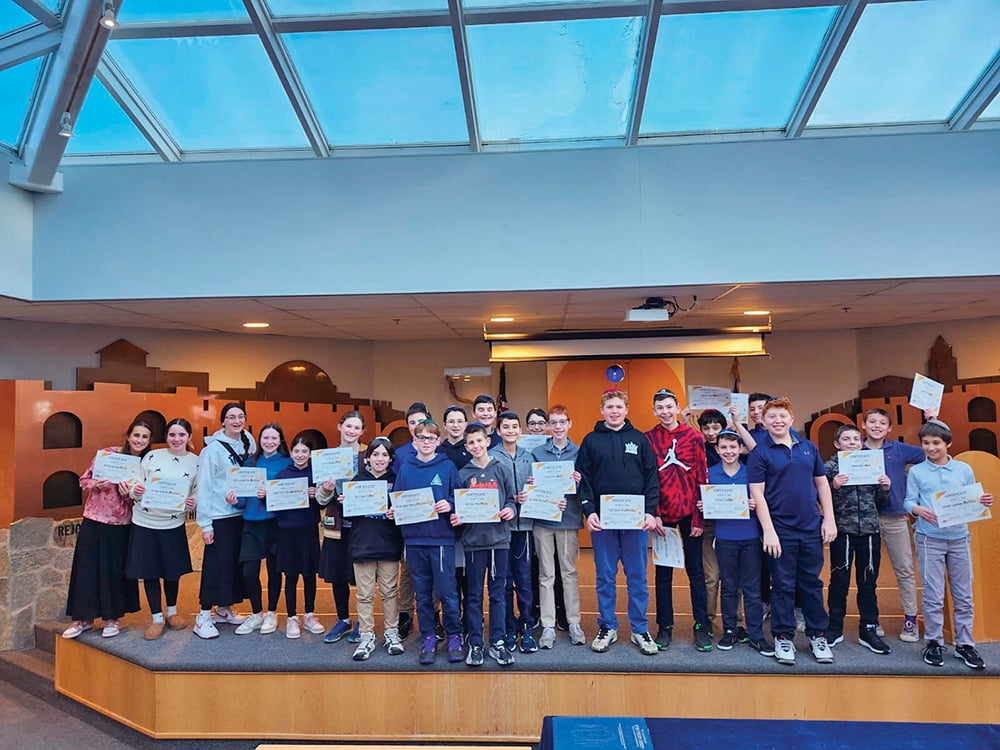


Thousands of people every year in the United States herniate spinal discs. The spine is cushioned at each bony level by an intervertebral disc, which acts as a shock absorber. When one of these discs ruptures or herniates, it can lead to a painful feeling in the back as well as radiating pain into the leg or legs. This is often known as sciatica. Many cases of sciatica caused by herniated discs resolve with nonsurgical therapy. However, when all else has failed, the patient sometimes needs a surgery, called a discectomy, in which the ruptured part of the disc is removed.
When this extruded part of the disc is removed, the hole it ruptured through is often left behind.
A common question both for surgeons and patients is: What stops a disc herniation from recurring or happening again? Is there something to close the hole that is created by the herniation? Up until now, there really has not been. However, over the last 10 years, Barricaid has developed a device which, in layman’s terms, acts to plug the hole of the disc herniation and significantly reduce the chances of a reherniation.
I met with the CEO of the company, who has invested significant resources and time in developing this product, with clinical studies in Europe and Asia leading to FDA approval in this country.
At the Center for Musculoskeletal Disorders, we recently treated a patient who previously had a disc herniation several years ago and re-herniated that same disc, which, as mentioned, is not uncommon. We decided to operate on the patient and place a Barricaid. This operation took place on November 3, 2021 in the Bergenfield Surgical Center in Bergenfield, New Jersey—and was the first Barricaid implantation in Bergen County. The patient’s surgery started at 8 a.m., and by 10:15 a.m., both the discectomy as well as the Barricaid implant were complete—with the device placed safely within the patient’s disc. The patient left the ASC several hours later. We are hopeful that this advance in medical technology will fill the void, pun intended, and potentially stop patients from rupturing their discs more than once, particularly after an operation.
We are proud to point out that we have added another practitioner at the Center for Musculoskeletal Disorders: spine surgeon Dr. Sam Zonshayn, newly fellowship-trained from NYU, and he assisted on the surgery! Zonshayn said: “This may be an answer to a problem which has plagued many a patient and surgeon over the last 50 years of disc surgery: Can we prevent this from happening again at the same level? Hopefully this will add benefit and value to people’s surgical procedures and outcomes.”
At the Center for Musculoskeletal Disorders, we aim to provide the best in care with an eye towards advancement. If you think we can be of help for any of your orthopedic, spinal, or pain management needs, please do not hesitate to contact us.
Contact Dr. Lewin at the Center for Musculoskeletal Disorders, 177 N. Dean Street, First Floor North, Englewood, NJ 07631, https://www.nynjcmd.com, 201-366-9377.













